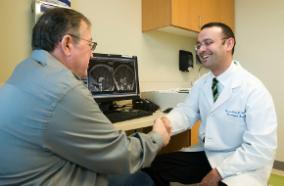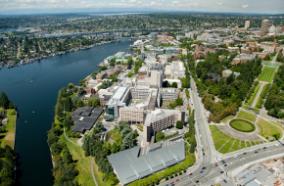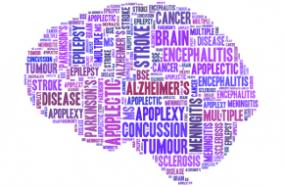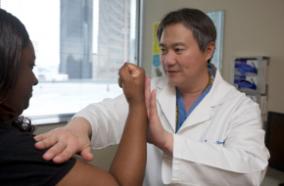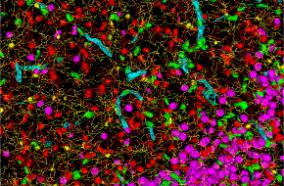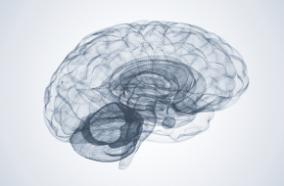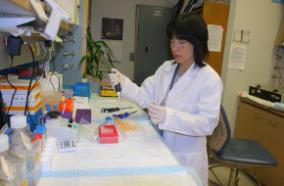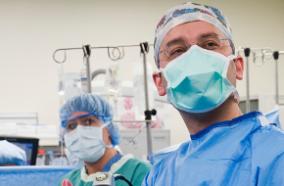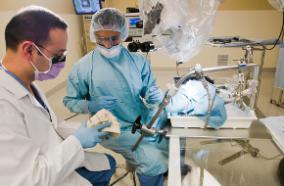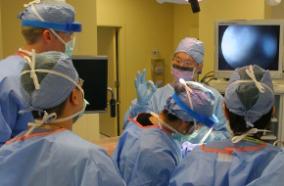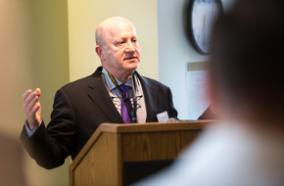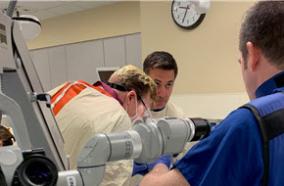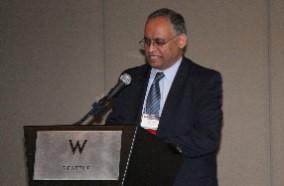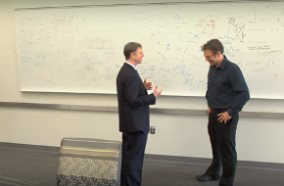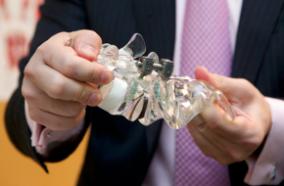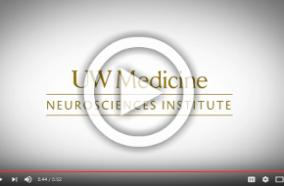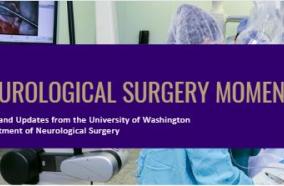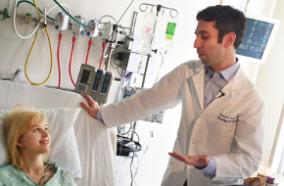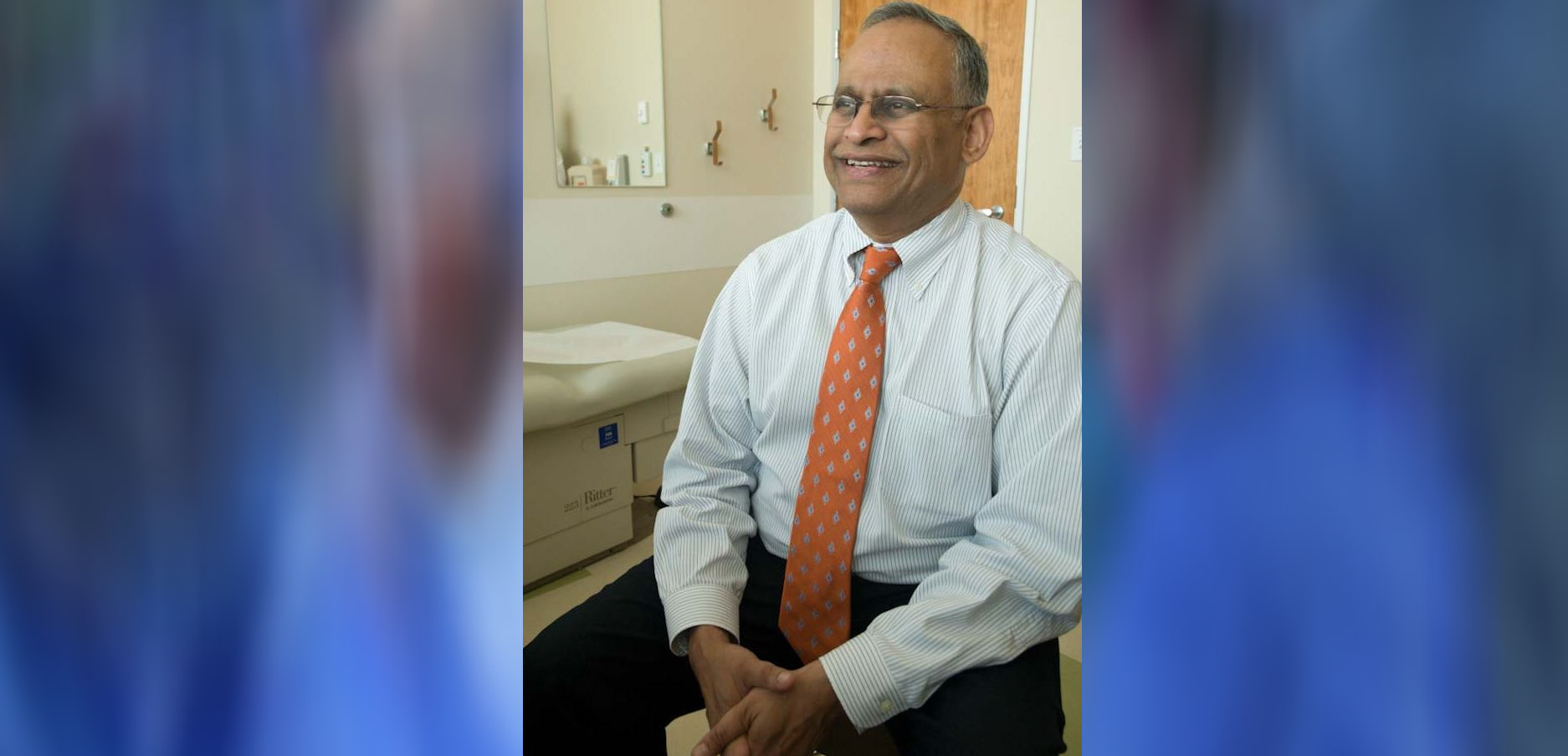
As a leader in brain tumor treatment, UW Medicine neurological surgeons provide comprehensive care for meningiomas at the Alvord Brain Tumor Center at University of Washington Medical Center – Montlake and in surgery clinics at Montlake and Harborview Medical Center. From a full range of surgical services to forward-thinking scientific research, we deliver the advanced therapy patients need.
“We frequently see the most difficult meningioma cases, and we are a one-stop solution for these patients,” says Laligam N. Sekhar, MD, FACS, FAANS, director of cerebrovascular surgery and skull base surgery at UW Medicine. “We offer every service in a collaborative, patient-focused environment dedicated to doing what is best for each person we serve.”
Treating all tumors
Meningiomas are the second most common brain tumor. Most growths are benign, but they can still cause complications. “Meningiomas can occur in different areas of the skull and occasionally the spine,” Sekhar says. “Their pathology is varied, so they can be very difficult to treat.”
Our providers have expertise in treating all types:
- Convexity meningiomas
- Perivenous sinus meningiomas
- Skull base meningiomas
Offering advanced surgical options
Surgery to remove a meningioma is recommended for tumors which are growing progressively, causing symptoms or pose a risk to surrounding brain structures due to brain or brain stem compression. “From the simple to the complex, we have every surgical option available,” Sekhar says.
Surgery for meningiomas can be assisted by preoperative endovascular embolization (putting small particles into the tumor to reduce the blood supply). The surgery may involve complex skull base approaches, endoscopic or less invasive approaches, and arterial or venous reconstruction. Many of these surgical techniques were pioneered by Sekhar and his team, and neurological surgeons from around the U.S. and the world have learned and benefitted from practicing these techniques. Like Michael Jordan playing basketball, meningioma surgery involves many nuances, and expert teamwork can make a big difference to a patient’s life. Many “inoperable tumors” have been safely able to be removed, as appropriate. We have five neurological surgeons at Harborview Medical Center and five neuro-interventionalists who actively work together along with an expert team of other clinicians to develop the best approach for the patient.
Approximately 30% of all tumors we treat have a WHO grade 2 rating, meaning they are aggressive and prone to recurrence after tumor resection.
To complement surgery, we also offer several radiation treatment options:
- Gamma Knife stereotactic radiosurgery
- Proton beam radiation
- Fractionated radiotherapy
Teaming up for the best outcomes
For patients with malignant tumors, we work as a team with the leading brain cancer specialists at Fred Hutchinson Cancer Center, an independent organization that serves as UW Medicine’s cancer program. Together, we provide access to the latest research, treatment options and clinical trials.
Researching new treatment options
Manuel Ferreira MD, PhD, and his group are conducting specialized genomic studies to help us better understand meningioma evolution. This may lead to innovative therapies in the future for many patients with these tumors.
Taking a collaborative approach
Close collaboration between all members of our team is a key component of our success. In addition to the surgeons and interventionalists, collaboration with neuro-anesthesia, neuro-oncology, otolaryngology, plastic surgery, ophthalmology, neuro-intensive care, advance practice providers, rehabilitation, researchers, nursing and social services is key to why we are able to provide world-class care for meningioma patients.

